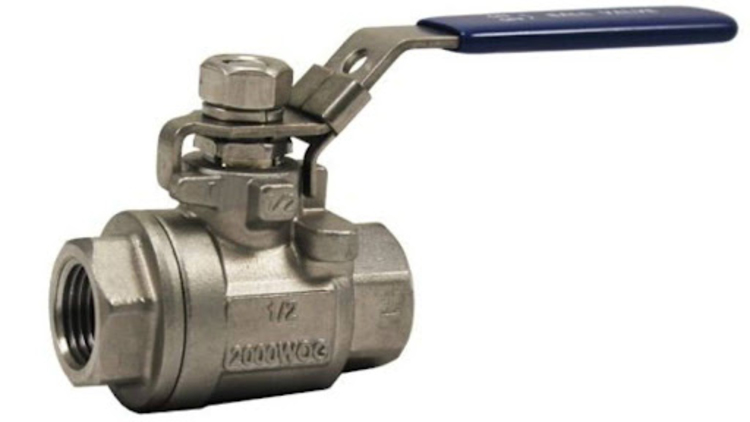What are High-Pressure Ball Valves Used For
In the dynamic world of industrial machinery and pipelines, where efficiency and reliability are paramount, the choice of valves can make all the difference. Among the many valve options available, high-pressure ball valves stand tall, offering a blend of durability, versatility, and performance.
Engineered to endure extreme conditions and maintain functionality under immense pressure, these valves have become indispensable in a multitude of industries.
Let’s embark on a journey to explore the intricacies of high-pressure ball valves and understand their applications, advantages, and significance in modern industrial settings.
Understanding High-Pressure Ball Valves
High-pressure ball valves are industrial-grade valves specially crafted to endure harsh environments and maintain functionality under immense pressure. Constructed from high-grade stainless steel, typically 316, these valves boast threaded female NPT end connections, ensuring secure attachment to pipelines and machinery. Their working pressure is rated at 2000 PSI, making them ideal for handling water, oil, and gas (WOG) in demanding applications.
Key Features of High-Pressure Ball Valves
- Robust Construction: High-pressure ball valves feature robust construction using materials like stainless steel 316, known for its corrosion resistance and durability. This ensures the valves can endure the harsh conditions of industrial operations without deteriorating over time. Engineered to withstand wear and tear, these valves provide reliable performance, making them ideal for demanding applications where durability is essential.
- Blow-Out Proof Stem: The stem of high-pressure ball valves is designed to be blowout proof, meaning it can withstand high-pressure conditions without compromising the integrity of the valve. This feature enhances safety and reliability, which is crucial in industries where even a minor malfunction can have significant repercussions.
- Locking Handle Mechanism: Equipped with a locking handle mechanism, high-pressure ball valves allow operators to securely lock the valve in position, preventing accidental opening or closing. This feature adds an extra layer of safety and control, particularly in environments where human error can lead to costly accidents.
- PTFE Seals and Seats: High-pressure ball valves are fitted with PTFE (polytetrafluoroethylene) seals and seats, renowned for their chemical resistance and low friction properties. This ensures tight sealing and smooth operation, even in corrosive or abrasive media.
Applications of High-Pressure Ball Valves
- Oil and Gas Industry: High-pressure ball valves are crucial components in the oil and gas sector, where operations often occur under extreme conditions. These valves are deployed in pipelines, refineries, and offshore rigs to regulate the flow of oil, gas, and other fluids with unparalleled precision and reliability. Their robust construction and ability to withstand high pressures make them indispensable for maintaining the integrity of crucial infrastructure in this industry.
- Chemical Processing: In chemical processing plants, where corrosive chemicals and high pressures are commonplace, high-pressure ball valves find extensive use. These valves play a vital role in regulating the flow of chemicals throughout various stages of the production process. By ensuring precise control over fluid flow, they contribute to chemical manufacturing operations’ safety, efficiency, and overall productivity.
- Power Generation: Power plants rely heavily on high-pressure ball valves to control the flow of steam, water, and other fluids in critical systems. Whether it’s managing boiler feedwater, regulating steam turbines, or controlling cooling water circuits, these valves are essential for maintaining optimal performance and safety in power generation facilities. Their robust construction and reliable operation make them well-suited for the demanding conditions prevalent in such environments.
- Water Treatment: Water treatment facilities leverage high-pressure ball valves’ versatility and corrosion-resistant properties to manage the flow of water, chemicals, and slurry during various treatment processes. From filtration and disinfection to desalination, these valves play a crucial role in ensuring the efficiency and effectiveness of water treatment operations. Their ability to withstand different types of water and chemicals makes them indispensable for maintaining the integrity of water treatment infrastructure.
Conclusion
High-pressure ball valves are indispensable components in industrial machinery and pipelines, offering reliability, durability, and versatility in handling high-pressure applications. These valves are critical in ensuring efficient operations and maintaining safety standards, from oil and gas to chemical processing, power generation, and water treatment. With their robust construction and advanced features, high-pressure ball valves continue to be the valve of choice for industries operating in demanding environments.
For further insights on this topic, explore more blogs at toptechpublisher.com.



Comments are closed.